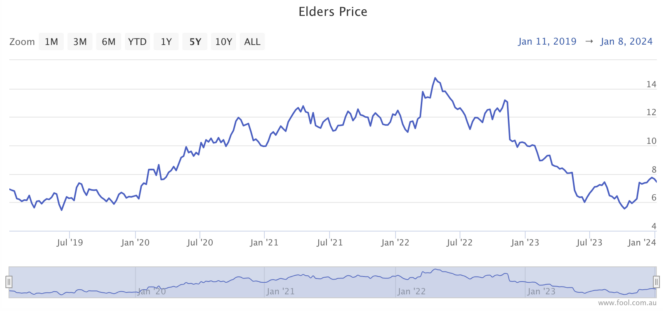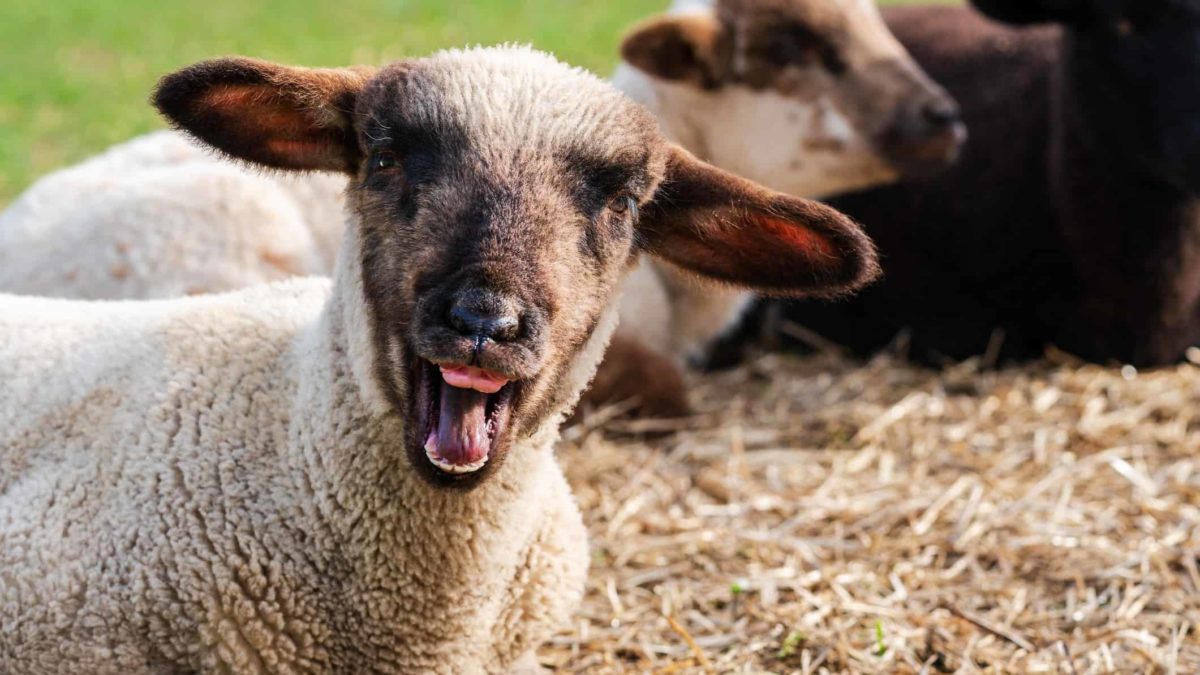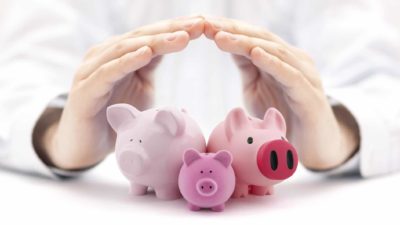ASX-listed agribusiness Elders Ltd (ASX: ELD) began stirring my interest again throughout 2023.
Being a cyclical company, waxing and waning with the agricultural sector, the 185-year-old business tends to expand and contract with livestock prices and farming conditions. So it was no surprise that the Elders share price sank last year as cattle and sheep supply caught up with demand.
The weakness in livestock prices translates into a 21% fall in this ASX share over the past year. Moreover, shares are now 45% below their 2022 high of $14.39, as shown below. Based on the current $7.89 share price, the company currently offers a dividend yield of 5.8%.

However, a 10-year Australian government bond provides investors a 'risk-free' yield of 4.1%. Such a proposition makes investing in shares for a source of income uninteresting unless it pays more than bonds.
Fortunately, at a 5.8% yield, Elders is touting 1.7% more than the bond market — assuming the company maintains its current dividends. Yet, a plentiful yield can be deceptively enticing if it isn't paired with a fundamentally solid business.
Time-tested ASX company with good bones
I believe one of Elders' biggest strengths is its long history. Not only does this give it an incredibly strong brand, but it also means the company has been around the block a few times.
The agricultural industry is brutal at the best of times. I saw it first-hand with my parents owning and operating a farming business as I was growing up. The lows are unforgiving to those who are ill-prepared when tough conditions hit.
Elders have seen their fair share of hardships. I still recall around 2012/2013, customers of Elders' banking division were withdrawing funds, concerned about an imminent collapse. Under Mark Allison's stewardship, the ASX-listed company bounced back, exiting unprofitable segments and implementing the first eight-point plan.
Sometimes, the best businesses are the ones that have the benefit of knowing what not to do.
Today, the Elders' balance sheet is robust. Rather than a debt ratio of 180% (2014), debt sits around 34%. This demonstrates the conservative approach despite the temptation to go for gold while the sun is shining (or should I say while the rain is pouring).
Furthermore, the consistent return on capital of more than 15% for nearly a decade illustrates how intentional management is in reinvesting money back into the business.
Lastly, the Bureau of Meteorology's declaration of El Niño could weigh down the Elders share price. However, as mentioned by CSIRO climate intelligence program research director Dr Jaci Brown, El Niño doesn't mean no more rain altogether:
It doesn't mean it is always hot and dry, but it does mean that in some regions and seasons of the year there is an increased chance of hot and dry conditions. It is just a higher probability we can see those conditions arise.
Nonetheless, I believe Elders can navigate drier conditions if they eventuate. No one state or territory is responsible for more than roughly a quarter of its business.
The ASX agribusiness trades on a price-to-earnings (P/E) ratio of 12.3.









